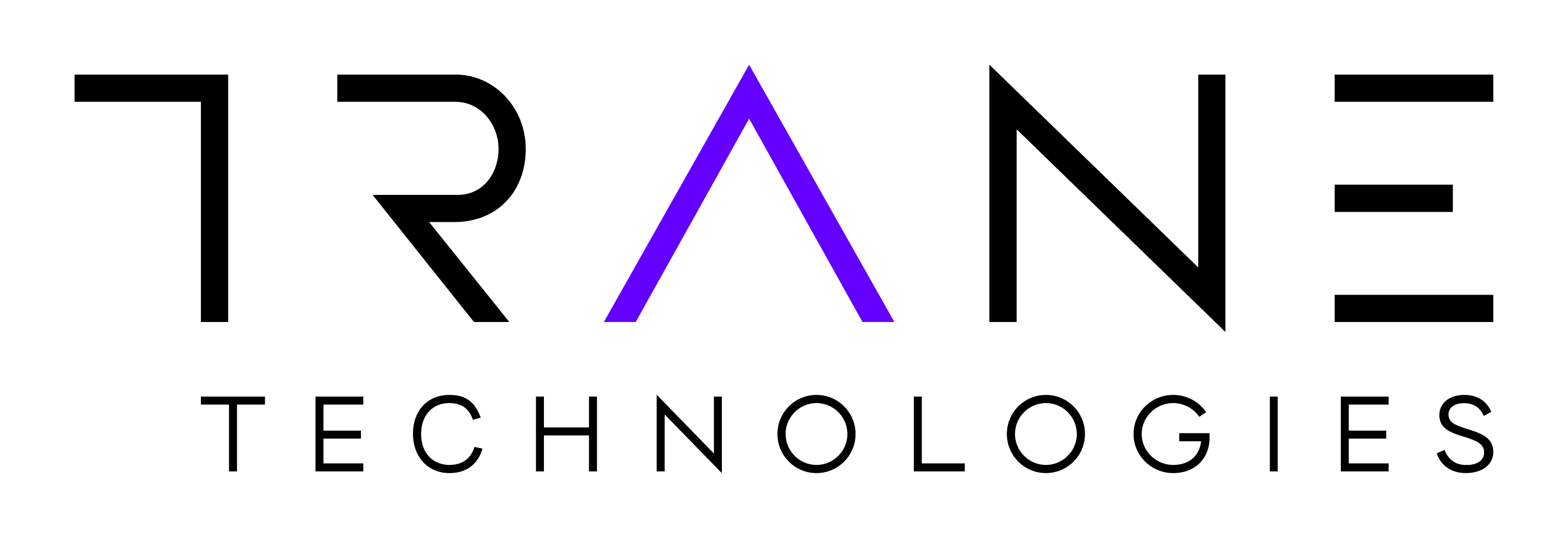Trane Exhibits First Air-Cooled Chiller with Climate-Friendly Refrigerant DR-55 at IIR International Conference of Refrigeration
YOKOHAMA, Japan, Aug. 16, 2015 /3BL Media/ – Trane, a leading global provider of indoor comfort and process solutions and services and a brand of Ingersoll Rand, presented the first-ever air-cooled demonstration chiller with next generation, low-global warming potential (GWP) refrigerant DR-55 at the IIR International Conference of Refrigeration.
This demonstration chiller is a Trane AquaTrine™ using DR-55, which is designed for top-grade apartments, luxury villas, office buildings, small restaurants, retail stores and hotels. It uses a high-efficiency hermetic scroll compressor and evaporator technology to provide a stable, reliable and highly efficient operation.
DR-55, marketed by The Chemours Company as Opteon™ XL55, is a next generation low-GWP refrigerant with strong safety, design and sustainability performance compared to other refrigerant choices. An olefin-based blend, DR-55 is currently being evaluated by the HVAC industry for use in unitary and residential equipment.
“We expect high performance HVAC systems to be available with next generation refrigerants like DR-55 within the next 12-18 months pending regulatory approval,” said Randal Newton, vice president of enterprise engineering for Ingersoll Rand. “This demonstration project is one way that Ingersoll Rand is delivering on our environmental commitment to identify, test and introduce technologies that are safe, increase efficiency and reduce climate impact.”
Performance Research on DR-55
The University of California (UC) at Davis Western Cooling Efficiency Center laboratory recently completed testing of DR-55 as a design-compatible alternative to R-410A in a Trane Precedent™ roof top heat pump.
“DR-55 should be considered as a possible replacement for R-410A because of the relatively low global warming potential and refrigerant charge requirements,” said Curtis Harrington, associate engineer at UC Davis Western Cooling Efficiency Center.
“Lab testing has shown excellent performance over a wide range of outdoor air conditions. Although some flammability will need to be accepted to use refrigerants with lower GWP, refrigerants like DR-55 offer greater potential for safer implementation.”
Oak Ridge National Laboratory (ORNL) recently completed demonstration testing to assess the overall performance of DR-55 as a design-compatible alternative to R-410A in commercial unitary systems or roof top units (RTUs). RTUs provide more than half of the cooling to the U.S. commercial building space.
“DR-55 is a very promising, low GWP candidate to replace R-410A in commercial unitary systems,” said Bo Shen, research and development scientist at ORNL. “There is a relatively easy conversion rom R-410A to DR-55; therefore, it should be considered as a viable design-compatible replacement for R-410A with increased performance and environmental benefits. DR-55 benefits compared to R-410A include 70 percent reduction in direct global warming potential, 10 percent lower refrigerant charge requirement, and significantly better performance in both efficiency and capacity, even at high ambient temperatures.”
At the IIR Event
The Trane AquaTrine demonstration unit is on showcase at the IIR International Congress on Refrigeration in Booth 18 at Pacifico Yokohama until Aug. 22, 2015.
Josh Hughes, research and development engineer of Chemours, and Ken Schultz, staff thermal system engineer of Ingersoll Rand, will present a paper on DR-55 at the IIR International Congress of Refrigeration. The presentation will be held at 8:50 a.m. in room 411/412 on Aug. 20, 2015.
Ingersoll Rand Climate Commitment
On Sept. 22, 2014 Ingersoll Rand made an environmental commitment to its employees, customers and shareholders – a roadmap to significantly increase energy efficiency and reduce our climate impact from our operations and product portfolio by 2030 (with milestones at 2020).
The commitment includes reducing GHG emissions related to its operations by approximately 35 percent by 2020; reducing GHG emissions related to its products by 50 percent by 2020; and investing $500 million in product-related research and development over the next five years to fund the long-term reduction of GHG emissions. This commitment is estimated to result in the avoidance of approximately 20,850,000 metric tons of CO2e globally by 2020, which is equivalent to the energy used by nearly 2 million homes for one year.
About Ingersoll Rand and Trane
Ingersoll Rand (NYSE: IR) advances the quality of life by creating comfortable, sustainable and efficient environments. Our people and our family of brands — including Club Car®, Ingersoll Rand®, Thermo King® and Trane® — work together to enhance the quality and comfort of air in homes and buildings; transport and protect food and perishables; and increase industrial productivity and efficiency. We are a $13 billion global business committed to a world of sustainable progress and enduring results.
Trane solutions optimize indoor environments with a broad portfolio of energy efficient heating, ventilation and air conditioning systems, building and contracting services, parts support and advanced control. For more information, visit www.ingersollrand.com or trane.com.
About the Western Cooling Efficiency Center
The Western Cooling Efficiency Center was established alongside the UC Davis Energy Efficiency Center in 2007 through a grant from the California Clean Energy Fund and in partnership with California Energy Commission Public Interest Energy Research Program. The Center partners with industry stakeholders to advance cooling-technology innovation by applying technologies and programs that reduce energy, water consumption and peak electricity demand associated with cooling in the Western United States.
About the International Institute of Refrigeration (IIR)
The International Institute of Refrigeration (IIR, www.iifiir.org) is the only independent intergovernmental organization which promotes knowledge of refrigeration and associated technologies to address today's major issues, including food safety, protection of the environment (reduction of global warming, prevention of ozone depletion), and the development of the least developed countries (food, health). The IIR commits itself to improving quality of life and promotes sustainable development.
Contact
Perri Richman
Ingersoll Rand
732-652-6943; prichman@irco.com

